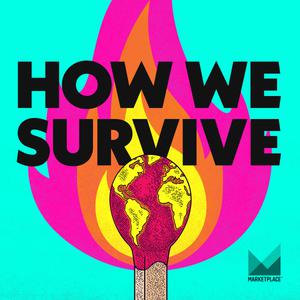
After the Fact
The Pew Charitable Trusts
- 23 minutes 23 secondsA Conversation With Hank Green
Stat: 45%: The share of U.S. adults who describe research scientists as good communicators.
Story: How does good communication help build trust in science? In this episode of “After the Fact,” we sit down with Hank Green—a science communicator and “internet guy” with over 30 million subscribers across his YouTube channels—to help answer this question.
Green reflects on how his 2023 Hodgkin lymphoma diagnosis inspired him to better connect with his audience and educate them about the science behind his treatment journey. He also speaks about the challenges of combating misinformation in today’s world, and why empathy, transparency, and clarity are key to fostering greater understanding.
17 January 2025, 1:18 pm - 20 minutes 57 secondsThe Long Journey for Reasonable Opioid Care
Stat: 1 in 4: More than 2 million Americans suffer from opioid use disorder, but only about 1 in 4 receive any care.
Story: Opioid use has become a major public health problem in the United States, but there are many obstacles to treatment, including stigma. In this episode, members of Pew’s substance use prevention and treatment team explain how to overcome barriers to care—and how new rules from the quarantine days of the pandemic can help show the way.
We also hear from Jordan Scott, an advocate for people with substance use disorders in Pennsylvania, who shares her own long journey with addiction and the obstacles she faced.
Please note that this episode references addiction and self-harm.
If you or someone you know needs help, please call or text the Suicide and Crisis Lifeline at 988 or visit 988lifeline.org and click on the chat button.
13 December 2024, 1:24 pm - 9 minutes 30 secondsThe Pursuit of Homeownership on Tribal Lands
Stat: 4 million to 7 million: The United States has a shortage of 4 million to 7 million homes.
Story: For many Indigenous communities, the concept of land or home ownership can stand in opposition to their cultures—which often place more emphasis on land stewardship. But just like communities across the country, on and off the reservation, housing availability and affordability is a growing problem. In this episode, Jody Cahoon Perez, now the executive director of the Salish and Kootenai Housing Authority, shares how she became a homeowner on the Flathead Reservation in Montana. And the “After the Fact” team dissects some creative solutions that could help cities address housing disparities, like restrictive zoning and inventory near city centers.
29 November 2024, 1:00 pm - 17 minutes 48 secondsUntangling Consumer and Medical Debt in the Courts
Stat: 41%: The share of U.S. adults who have some form of health care debt.
Story: Millions of Americans are struggling with debt, from credit card bills to unexpected medical expenses. And many face a tough choice between paying off debt or covering basic needs such as rent, food, and health care. But what happens when these debts go unpaid?
In this episode, Lester Bird of The Pew Charitable Trusts explains how it’s possible for consumers with debt to end up in civil court, facing a lawsuit, or experience serious consequences such as wage garnishment. He discusses how these cases make up a large portion of court dockets. Noam Levey of KFF Health News shares how medical debt cases can worsen the economic conditions of individuals and communities.
And Minnesota Attorney General Keith Ellison discusses how policymakers in his state are helping to ease the burden of medical debt on his constituents through landmark reforms.
15 November 2024, 1:11 pm - 18 minutesKeeping Indigenous Culture on Maryland’s Shores
Stat: 1 foot: the amount the sea level rose in the Chesapeake Bay in the last century, twice as fast as the global average.
Story: Climate change is driving sea-level rise and worsening coastal flooding across the globe. And in many coastal communities, the rising waters are changing local environments and the places people call home. For generations, the Nause-Waiwash people have raised families, worked, and practiced traditions like muskrat trapping in the marshlands of Maryland’s Eastern Shore. In this episode, Nause-Waiwash Chief Donna “Wolf Mother” Abbott takes us through her ancestral lands and guides us through muskrat hunting in the marsh. She discusses how her Tribe’s lands are disappearing and what she’s doing to protect her community’s histories and traditions.
1 November 2024, 12:19 pm - 21 minutes 21 secondsLooks Can Be Deceiving: Deepfakes
The rise of deepfakes—realistic fake videos made with artificial intelligence software—is making it even more difficult to sort fact from fiction.
When this episode originally aired in 2019, 57% of social media news consumers said they expected what they see there to be largely inaccurate. And the public continues to be wary about changes in the digital landscape. In 2023, Pew Research Center found that 52% of U.S. adults said they are more concerned than excited about AI in their everyday lives.
In this episode, digital forensics expert Hany Farid—then at Dartmouth University, and now at the University of California, Berkeley—shares how he advises governments and the media on how to meet this growing threat. And he considers the implications for people and societies when we can’t necessarily believe what we see.
18 October 2024, 12:00 pm - 22 minutes 9 secondsMeeting Crisis With Care: Transforming Mental Health and Justice
Stat: 2 million: The number of times people with mental health conditions in the United States are jailed annually.
Story: In the United States, law enforcement officers and emergency room physicians are often the only service providers on call to respond to people in a mental or behavioral health crisis—but they don't always have adequate training or capacity to handle these calls. As communities throughout the country grapple with increasing demand for mental health resources, new solutions such as crisis response teams are making a positive impact.
In this episode, we travel to Abilene, Texas, to learn how its interdisciplinary response team is meeting the needs of its residents, keeping people out of jail, and strengthening access to care.
Additional guests featured in this episode: William Claxton, officer, Abilene Police Department, and former community response team member; Andrea Reyes, mental health crisis specialist, Betty Hardwick Center; Brad McGary, lieutenant, Abilene Police Department; and Josh Horelica, firefighter/paramedic, Abilene Fire Department, and former community response team member.
4 October 2024, 12:00 pm - 19 minutes 2 secondsScientists at Work: The Secret Life of Manatees
If you’ve ever seen a manatee, chances are you were in Florida—but these aquatic relatives of the elephant also live across 21 African countries. In this episode, 2017 Pew marine fellow Lucy Keith-Diagne discusses the African manatees that live in remote, murky waters, and explains what makes this species different from other manatees and the challenges marine scientists experience in collecting data on them.
Since this episode first aired in 2018, Keith-Diagne and her fellow researchers have collaborated at the first-ever African manatee conference and are initiating new work to help protect this species.
20 September 2024, 12:00 pm - 18 minutes 24 secondsThe Art and Science of Saving Mangroves
Story: Mangrove forests are natural protectors, shielding coasts from storms, sheltering species, and soaking up carbon. In 2019, when this episode originally aired, 50% of the world’s mangroves had been lost. Now, 50% of the world’s remaining mangroves are at risk.
Reversing the decline of these habitats isn’t just a science—it’s an art, says marine biologist Octavio Aburto. He uses his camera along with high-resolution satellite imagery to assess real-time changes in mangrove coverage—and to reveal the amazing hidden marine life of these critical ecosystems.
6 September 2024, 12:00 pm - 34 secondsShare Why You Listen to ‘After the Fact’
The “After the Fact” team provides data and expert analysis on the biggest challenges facing society today. We go behind the scenes with experts, examine solutions pointing the way forward, and feature people and stories that bring data points to life.
What keeps you listening to the podcast? Tell us in a short survey at pewtrusts.org/podcastsurvey.
Upon submission we’ll enter your name to win a $100 gift card. The survey deadline is Sept. 15 so fill it out soon for your chance to win.
Read the official rules for the “After the Fact” podcast giveaway sweepstakes here: www.pewtrusts.org/surveysweepstakes. *NO PURCHASE OR PAYMENT NECESSARY TO ENTER OR WIN. Open to legal U.S. residents of the 50 U.S., D.C. and Puerto Rico, age 18+ (19+ in AL and NE, 21+ in MS). Void outside the 50 U.S./D.C./Puerto Rico and where prohibited. Sweepstakes starts at 12:00:01 AM ET on [August 9, 2024]; ends at 11:59:59 PM ET on [September 15, 2024]. To enter, complete the survey below, provide all required information, and submit to be automatically entered with one (1) entry. Two (2) prize winners; total ARV of two prizes: $200. Odds of winning depend on the number of eligible entries received, Limit: one (1) entry per person. For full Official Rules, visit: www.pewtrusts.org/surveysweepstakes Sponsor: The Pew Charitable Trusts, 901 E Street NW, Washington, DC 20004.
30 August 2024, 12:00 pm - 25 minutes 7 secondsFrom Lab to Life: Why Cancer Resists Treatment
Stat: 13%: The average five-year survival rate for pancreatic cancer patients in 2024, according to the American Cancer Society. This is compared to a 90% average five-year survival rate for people diagnosed with breast cancer.
Story: Scientists have made tremendous progress on cancer research to improve patient survival rates. But challenges still exist because some cancers can suddenly become unaffected by treatment.
In this episode, Christina Towers, a cancer cell biologist from the Salk Institute for Biological Studies, explains how cancer cells can adapt their metabolic processes—through a mechanism she studies called autophagy—to resist drug therapies. She discusses how her research studying this process could lead to new approaches to prevent and control a cancer’s resistance to treatment—and, ultimately, save lives. And as the first Black faculty member at Salk, Towers shares how her mantra, “Honored to be first but refuse to be the last,” guides her efforts to increase diversity across the scientific community.
23 August 2024, 1:00 pm - More Episodes? Get the App
Your feedback is valuable to us. Should you encounter any bugs, glitches, lack of functionality or other problems, please email us on [email protected] or join Moon.FM Telegram Group where you can talk directly to the dev team who are happy to answer any queries.
 Hidden Brain
Hidden Brain
 The New Yorker Radio Hour
The New Yorker Radio Hour
 The Daily
The Daily
 Throughline
Throughline
 How We Survive
How We Survive
 On the Media
On the Media